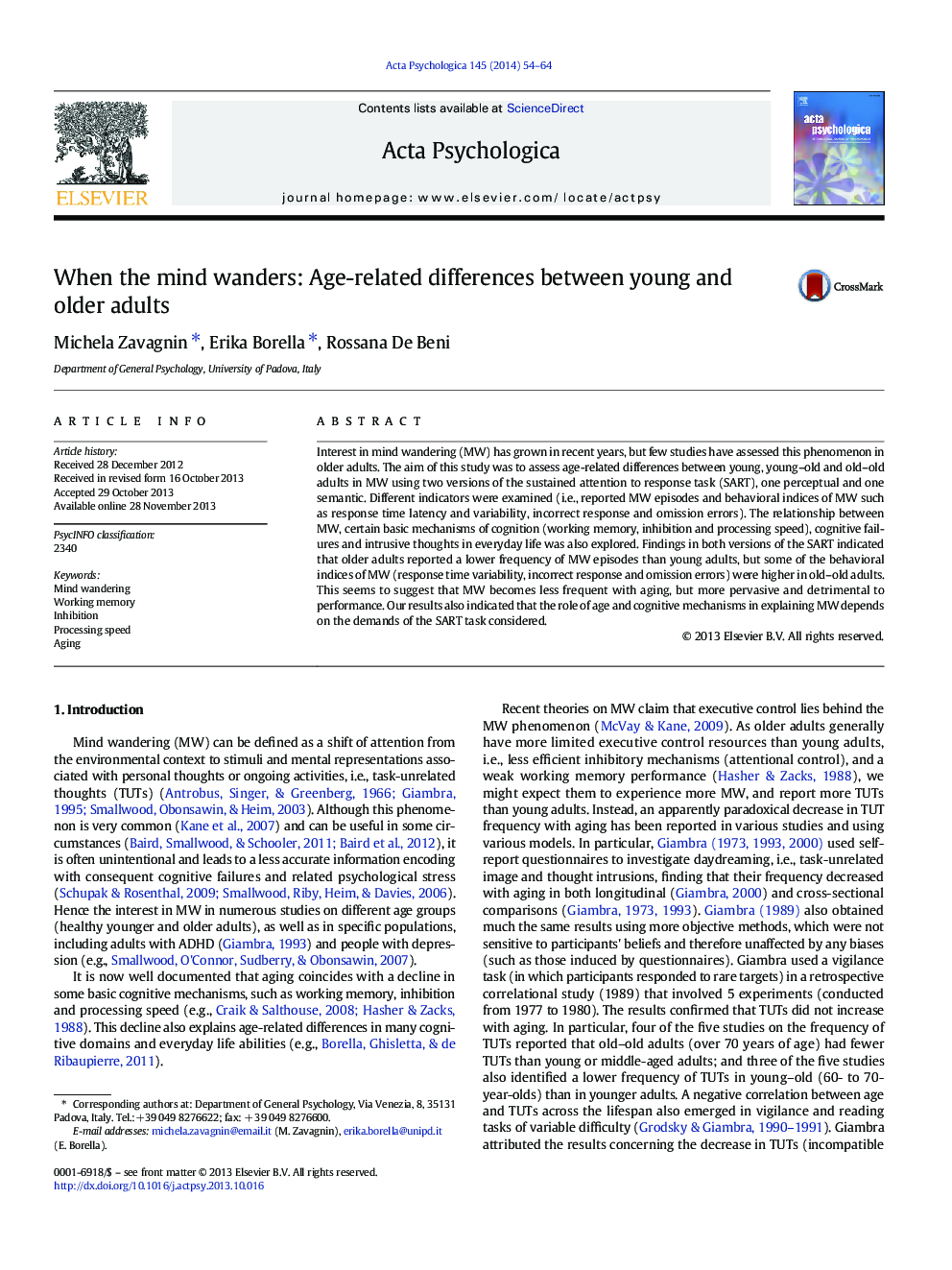| کد مقاله | کد نشریه | سال انتشار | مقاله انگلیسی | نسخه تمام متن |
|---|---|---|---|---|
| 919845 | 1473613 | 2014 | 11 صفحه PDF | دانلود رایگان |
• We assessed age-related differences in young and older adults' mind wandering.
• Using the probe-caught method older adults reported fewer mind wandering.
• Behavioral indices showed that old–old adults were more disengaged from the task.
• Mind wandering is explained by age and working memory.
Interest in mind wandering (MW) has grown in recent years, but few studies have assessed this phenomenon in older adults. The aim of this study was to assess age-related differences between young, young–old and old–old adults in MW using two versions of the sustained attention to response task (SART), one perceptual and one semantic. Different indicators were examined (i.e., reported MW episodes and behavioral indices of MW such as response time latency and variability, incorrect response and omission errors). The relationship between MW, certain basic mechanisms of cognition (working memory, inhibition and processing speed), cognitive failures and intrusive thoughts in everyday life was also explored. Findings in both versions of the SART indicated that older adults reported a lower frequency of MW episodes than young adults, but some of the behavioral indices of MW (response time variability, incorrect response and omission errors) were higher in old–old adults. This seems to suggest that MW becomes less frequent with aging, but more pervasive and detrimental to performance. Our results also indicated that the role of age and cognitive mechanisms in explaining MW depends on the demands of the SART task considered.
Journal: Acta Psychologica - Volume 145, January 2014, Pages 54–64
